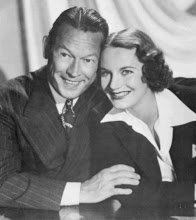"The Nanjing Massacre remains a touchstone of China-Japan conflict nearly seven decades after the event. Now Chinese plans to honor John Rabe, a Germany citizen in Nanjing, for his efforts to protect Chinese citizens from slaughter have inflamed tensions with Japan over war and rare memory. The Chinese plan offers a rare example in the annals of warfare in general, and China in particular, of recognizing in a public and prominent way the achievements of a foreign national in a world that is dominated by nationalist icons."
"The Chinese authorities are drawing up plans for a museum dedicated to the memory of John Rabe, who defied the "Rape of Nanking'' - a six-week massacre during which an estimated 300,000 Chinese were slaughtered by Japanese soldiers."
"A card-carrying Nazi, Rabe was a China-based Siemens employee in 1937 when the Japanese stormed Nanking, or Nanjing as it is now known. His superiors ordered him to return home, but instead he sent his family back and established a "safety zone'' in the city where he offered shelter to terrified Chinese."
This is a story I found about a week ago that I saved as a draft, and promptly forgot. It reawakens a World War 2 story that most people don't know about. I first heard of this through a televised documentary series on the era a few years ago.
The "good nazi" it seems, was the saviour of countless Chinese lives during the "Rape of Nanking", and has never gotten the recognition he deserved, outside China. The story also brings back into focus the fact that Japan has never atoned for it's activites throughout the East during that period in which it told it's citizens it was "liberating" Asia from the colonial empires of Europe. To this day it hasn't come to terms, as Germany has, with it's part in plunging the world into war, nor have they done, again, as Germany has, admitted to the war crimes committed during it's campaigns.
They teach their people that they were forced to go to war as a matter of national survival, and because, as a nation, they've kept the truth from themselves, deny that they committed any war crimes at all. Their refusal to accept the truth about their behaviour has been a huge wedge between them and practically all their Asian neighbors who suffered Japanese occupation, to this day.
Today, the Japanese are looked upon as model citizens of the world, but just how good are they when they can't admit to their own past? Imagine if today, Germans believed, and taught their children, that Nazi atrocities never happened, and that the other European countries forced Germany into a war it didn't want. Who would trust them? Of course there are Holocaust deniers, but they don't represent the bulk of Germans, and are not in control of the national psyche. It's the opposite in Japan, and it's neighbors know the truth, just as Europeans know the truth of Germany.
We Americans can pat ourselves on the back for aiding the Japanese deniers, as it was in our best interest to concentrate on the Cold War, and fashioning Japans' future roll in it, that we didn't push the point of forcing them to accept their atrocities, like we did in Germany. Oh, we did hold War Crimes trials, but they were not nearly as extensive as the ones at Nuremberg, and even of those few convicted, few were executed, and the rest were quietly released (pardoned) after less than ten years of incarceration. We were tired of war, and were in a hurry to put it behind us so we could deal with more pressing concerns.
And time marches on......









